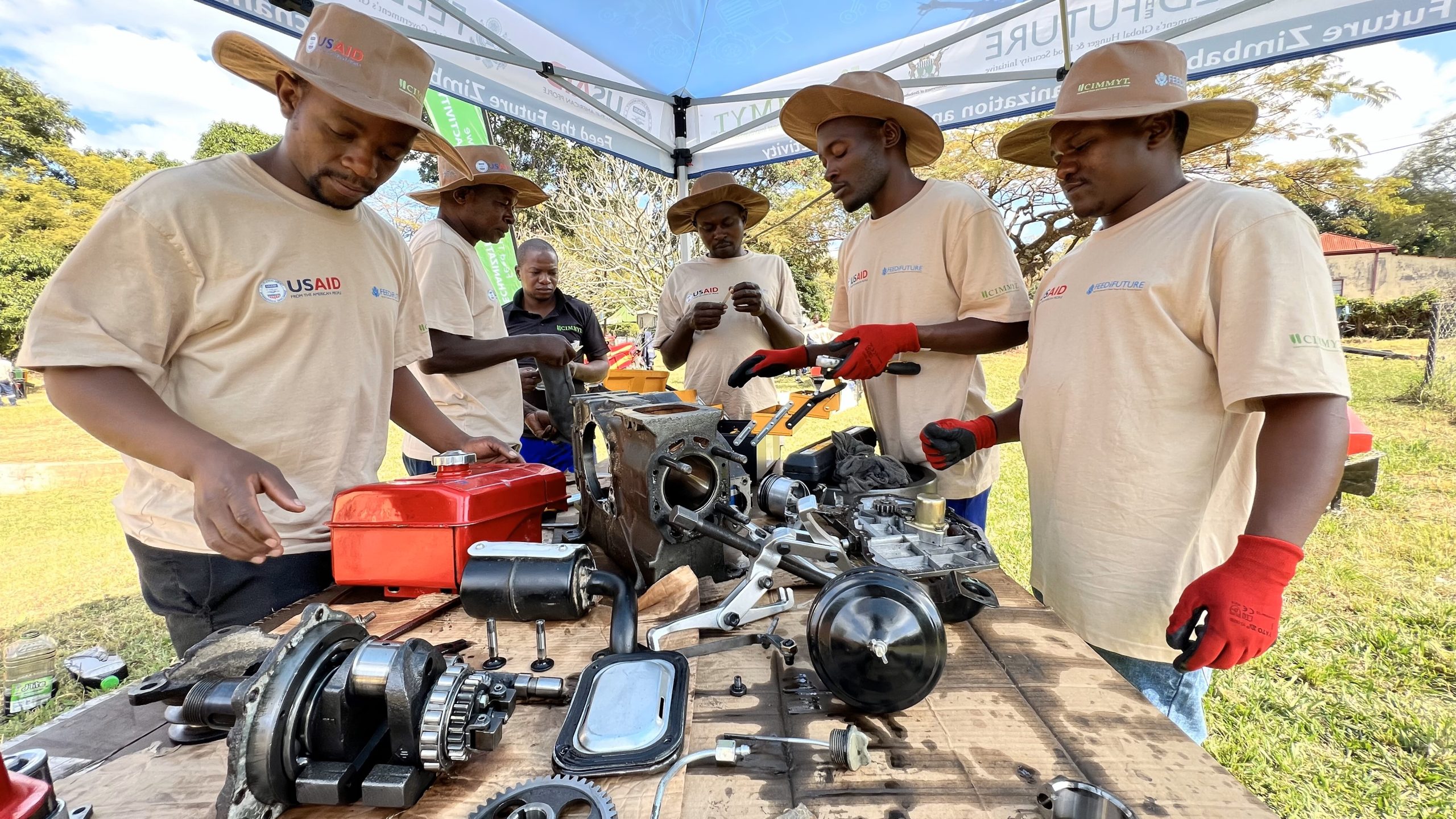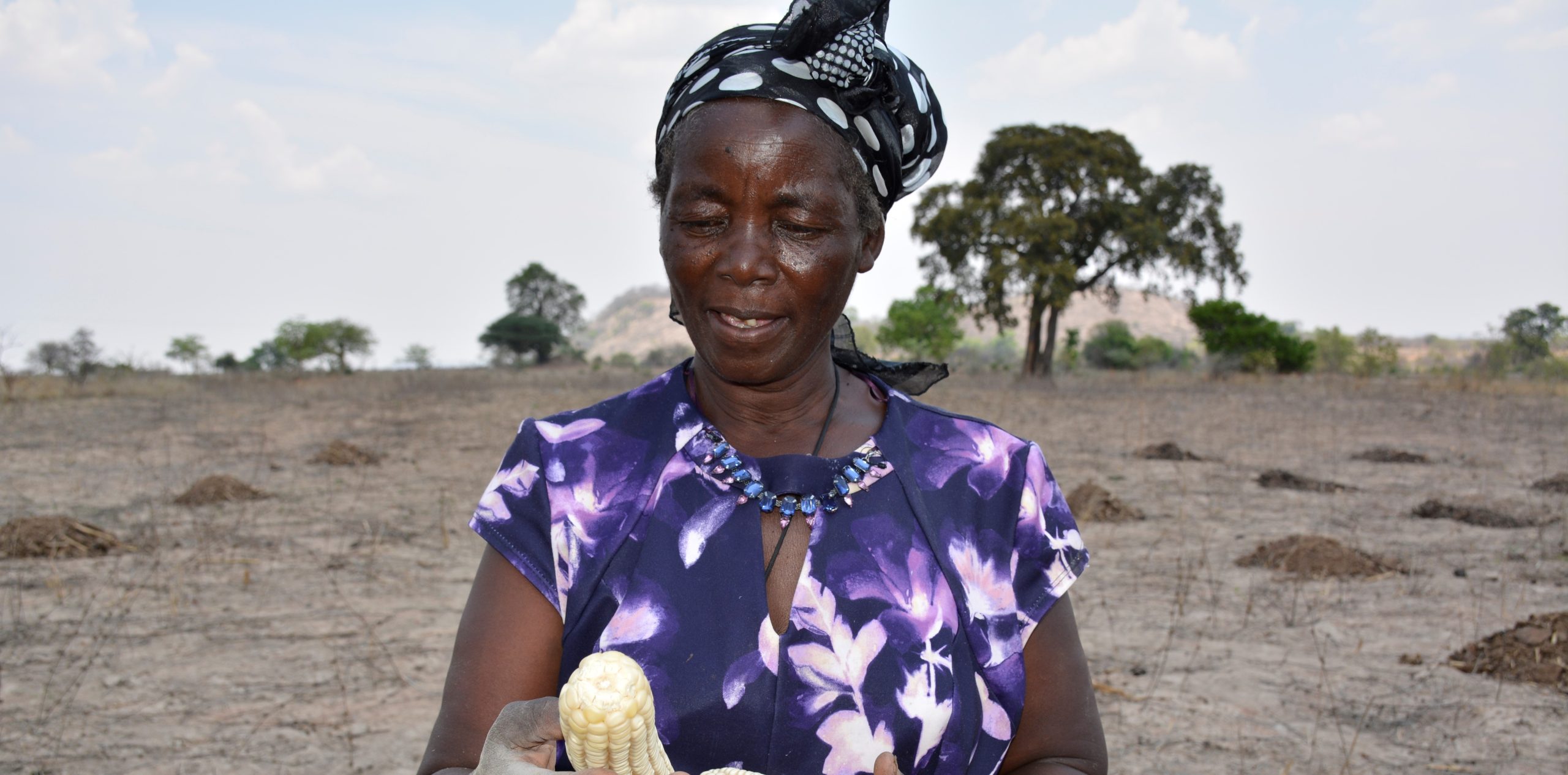Smallholder mechanization out scaling depends upon the availability of skilled mechanics who are fully oriented with machinery operation. However, this crucial skillset is often identified as a missing link. In many instances, lack of care or regular checks and the absence of readily available mechanics has led to the failure of mechanization projects in sub-Saharan Africa, with frequent machine breakdowns and equipment left sitting idle long after a project intervention. Across smallholder farming communities, this phenomenon can be seen through the presence of obsolete and abandoned machinery often serving as breeding grounds for birds.
The Feed the Future Zimbabwe Mechanization and Extension Activity, funded by the United States Agency for International Development (USAID), aims to break this vicious cycle by improving the skillset of local mechanics and helping them stay in tune with evolving innovations in farm machinery. Implemented by CIMMYT, this activity targets existing mechanics across ten districts in Zimbabwe, offering specialized maintenance services to providers who own machinery. Through investing in their training, local capacity to troubleshoot, service and repair machinery will increase.

Gaining practical experience
The program approaches training through full immersion and a deep dive into the individual components of key equipment. Workstations are set up to include a diesel engine—which forms the core of most of the machinery—a two-wheel tractor and post-harvest machines such as the multi-crop thresher, feed-chopper grinder and peanut butter machine. For most of the participants, the workshop presents them with first-hand experience of handling such machinery.
Andy Chagudhuma and Tendai Machonesa—from Bikita and Chiredzi, respectively—were among the first ten mechanics to participate in the five-day training. “I learned about all the machines here,” says Chagudhuma, “breaking them apart and fixing them. We worked through different scenarios while perfecting our knowledge on the operation of all the machinery.” With new skills gained, they eagerly await the opportunity to offer their expertise to service providers in their local areas, and a newfound confidence fuels their commitment to providing support through repair and maintenance work.
However, one remaining challenge is the notable absence of female participants in the training. While the field of mechanics is often male-dominated, the Mechanization Activity seeks to promote a gender-inclusive environment for local mechanics and service providers through awareness meetings and skills training. In the future, more machinery and technical trainings will be targeted specifically towards women as a way to redress this imbalance.
Overall, the benefits of the training echo far beyond the workshop itself. Through the skills acquired, opportunities for additional income generation increase, and the participation of rural youths in mechanization-oriented businesses and a thriving local economy are possible. By empowering local mechanics, the Mechanization Activity not only breathes life into their communities and the machinery sector but also paves the way for one of the project’s key objectives—the establishment of successful and entrepreneurial service providers.

 Gender equality, youth and social inclusion
Gender equality, youth and social inclusion